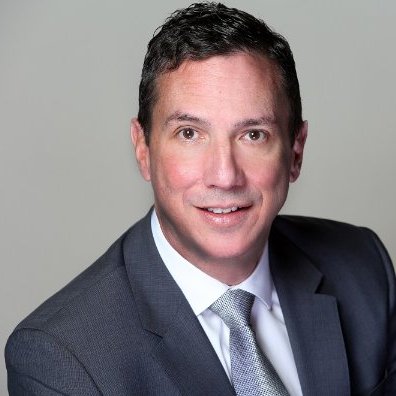Mark Geller, MD serves as President and Chief Executive Officer for Nyack Hospital.
On Friday, September 22, Dr. Geller will speak on a panel at Becker's Hospital Review 3rd Annual Health IT + Revenue Cycle Conference. As part of an ongoing series, Becker's is talking to healthcare leaders who plan to speak at the conference, which will take place September 21 through September 23 in Chicago.
To learn more about the conference and Dr. Geller's session, click here.
Question: Looking at your IT budget, what is one item or expense that has surprised you in terms of ROI? How so?

Mark Geller, MD: We were surprised that our Meaningful Use initiatives had a near immediate return on investment. Total in payments related to MU1 & 2 projects offset our actual spend on our Hospital’s EHR. Buy-in from IT and users was present from the outset allowing us to successfully attest. Once completed, we had a platform that allowed us to move on to other projects including DSRIP.
Q: Finding top tech talent is always a challenge. Say a CIO called you up today to ask for an interview question that would distinguish the best candidates from the mid- to low-performers. What question do you suggest he or she ask?
MG: The secret to finding top technical talent never rests on the response to a single question. It is more tied to the overall interview and utilization of techniques like behavioral-based interviewing. When determining if a candidate will be a good fit, we like to ask very specific questions based on the candidate’s experiences and how they might use those experiences helping us resolve the real challenges our organization is facing. Reality is hard to beat when trying to determine a candidate’s ability to deliver business value to the enterprise. We would also want to know that the candidate values the team around him/her, so we might ask: What are the most important skills to have in an IT department? How might you go about hiring IT team members or developing required skills on your team?
Q: We spend a lot of timing talking about the exciting innovation modernizing healthcare. It's also helpful to acknowledge what we've let go of. What is one form of technology, one process or one idea that once seemed routine to you but is now endangered if not extinct? What existed in your organization 2-5 years ago but not anymore?
MG: First, let’s acknowledge that the term “healthcare modernization” is a bit of an oxymoron, as healthcare lags other industries in adoption and implementation of advanced technology by several years. Physical servers in the data center would be one form of technology that has seen significantly decreased utilization over the last several years. The increasing ubiquity of virtualization has become central to increasing up-time, faster server provisioning, improving disaster recovery and business continuity. The development and use of this technology has helped in our transition to cloud-based (hosted) solutions.
Q: Tell us about the last time you were truly, wildly amazed by technology. What did you see?
MG: While it does not amaze the non-IT person, virtualization is one of the more amazing technologies in our universe. When we look back at the recent past, we see data centers with large main frames, and racks upon racks of servers. Now we interact with much smaller devices having a much smaller footprint but with enormous capacity. One of the more amazing aspects is the way virtualization has moved data from the server to the device to the infrastructure. A not insignificant benefit is a decreased carbon footprint achieved by reducing power consumption and cooling requirements. At our hospital, utilizing virtualization, we expanded applications and devices at the same time removing two racks from our data center. In addition, we now operate at a smaller size and with less power consumption while at the same time having increased speed and efficiency. Virtualization has profoundly impacted the delivery of technology solutions to the organization.
When I posed this question, “what wildly amazes you,” to my team, they identified two potentially disruptive technologies. One is Blockchain, specifically, the private blockchain coupled with Restful Application Program Interfaces (API’s). When used in a healthcare interoperability context, it allows for secure sharing of data between networks at a lower cost, without compromising performance and security. This technology has the potential to fundamentally change our interactions with current health information systems. The other is Mixed Reality. Through the combination of hardware and software, we are now able to interact with both holograms and physical items in the environment around us. The technology has become so sophisticated one can now hold and wear holograms while interacting with the software. The implications for healthcare, while still in their infancy, are enormous.

